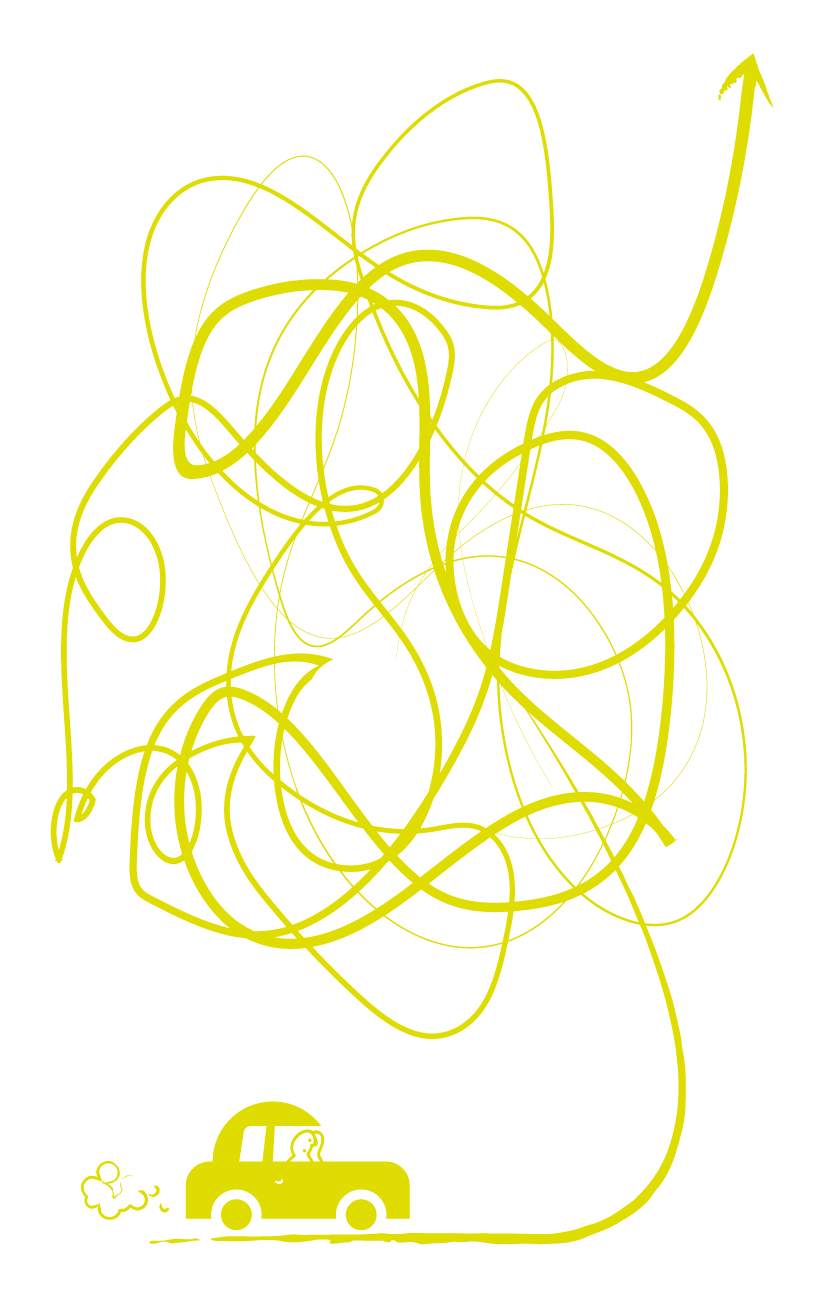Driving into the future without setting the satnav
When my husband and I first used the satnav in our new car, we discovered that it wouldn’t take the full postcode of our destination. We argued. I dug out a 10-year old AA map. The roads might have changed, but at least we could visualise where we were heading and navigate the way there. My husband, much more technically dependent, insisted that three quarters of a destination was enough for this little dashboard device to get us there. I won’t divulge the results. We are still married, though.
I love it when I suddenly spot parallels between different areas of my life. This just happened to me again. I don’t know why, but I’d never really joined the dots between the coaching GROW model, the policy frameworks that I teach people … and the satnav.
In The 7 Habits of Highly Effective People, Stephen R. Covey sets out the principle of “begin with the end in mind”. If there’s one problem I encounter more than any other in people’s thinking, it’s a failure to pin down the goals or outcomes before starting on a process of developing a policy or making lifestyle or career changes. Both GROW and the policy frameworks encourage this.
Establishing a client’s goals (the G in GROW) is a fundamental and necessary stage of the coaching process. Without this, any further thinking will be redundant. But the human brain has a sneaky tendency to leap straight from the perceived problem to a solution without going through this essential stage. Someone I worked with recently told me that she was so unhappy in her job that she’d applied for a high-powered position on an island on the other side of the world. When I asked her where she saw herself in 5 years’ time, she said: on that island on the other side of the world. We eventually established that her goals included working shorter hours, having less stress in her life and being able to spend more time with her children and grandchildren. The job application was quickly withdrawn!
Similarly, unless the policy professional is absolutely clear about the ultimate desired outcomes they and their organisation are looking to achieve, it is highly likely that the ensuing policy will simply not work. That vision of the future needs to take into account the corporate values and strategic objectives. I often find clients use “doing” words for their outcomes. For example, a recent client set their desired outcomes broadly as “funding a project that does X”. After some intensive rethinking, we reworked it into something that focused on what a future world would look like if all were perfect, rather than on what he could do to achieve a change to the current situation. This opened up his thinking about the possible options for getting there.
It perhaps doesn’t really matter what road you take to get to your destination, so long as you do actually get there. But you can’t get there unless you’re absolutely sure of where “there” is.
In the policy world, it is all too easy to leap to the “move to an island on the other side of the world” conclusion. Ministers frequently do this, sometimes with disastrous consequences. I wish I had been David Cameron’s coach when he called the Brexit referendum. I would certainly like to have been his policy adviser. Or the person who set his satnav. Either way, I would like to think that the isolated island would not have been the destination.
If you need help with setting your personal or policy goals, do give me a call on 07726347868, or email me at zoe@windmillconsulting.co.uk
